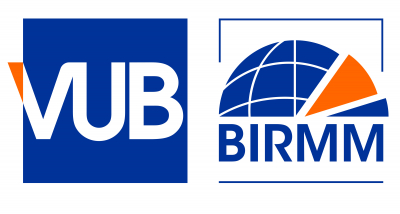
Lunch-time seminar with Prof. Marie-Laure Basilien-Gainche
As part of the Borders and International Mobility (BIM) seminar series, we are pleased to invite you to a lunch-time presentation by Prof. Marie-Laure Basilien-Gainche, examining how states are legally thickening their borders, both as zones and as line, through strategies of externalization and internalization. This seminar will be followed by a lunch, where food and refreshments will be provided.
The aim of the intervention consists in showing how states are making their borders thick - wide and deep - through the recourse to the law, through the use of legal norms (adoption and implementation). Understood as lines, nodes or zones, borders have been widened by legal methods, in order to establish more effective control over their crossing and tighter management of people on the move. Works from a variety of disciplines have explored the frontierization and borderization of spaces. Such a phenomena is the result of two dynamics: one centrifugal - the externalization - has projected border control beyond the national territory, through visa policy and agreements with third countries, so that border control is deployed far beyond the border lines; the other centrifugal - the internalization - has stemmed from the excision of part of the national physicial territory from the legal national territory, so border zones penetrate into the interior through the deflection of the common norm, for instance with the development of fictions of non-entée. Borders understood as zones are thus often seen in opposition to borders understood as lines. Yet the latter have become thicker, with certain sections of the border becoming wider (e.g. the maritime border of the central and eastern Mediterranean, the land border between Greece and Turkey, the border between Poland, Latvia, Lithuania and Belarus). An example of this process can be found in the construction and expansion phases of Spain's surveillance system at the Moroccan enclaves of Ceuta and Melilla. More than fences and walls, it is the practice of pushbacks that demonstrates the thickening of borders: these are methods of removing migrants without assessing their individual situation, carried out rapidly and arbitrarily by border guards and coastguards from areas upstream or downstream of the state's territorial contours. Such thickening of borders, both zones and lines, results in a reduction in migrants' access to their rights, and an expansion of areas of lesser rights for migrants.
Biography
Professor of law at the International, European and Comparative Law Centre of the University Jean Moulin Lyon 3 and member of the French Collaborative Institute on Migration, Marie-Laure Basilien-Gainche is Senior Member of the Institut Universitaire de France. She is also an associate member of the Centre for Research and Studies on Fundamental Rights at University Paris Nanterre, the Centre for Migration Law at Radboud University in Nijmegen, the Global Migration Centre at the Graduate Institute in Geneva, the Border Criminology group at Oxford University School of Law, and the Centre for the Legal Study of Borders and Migration at Queen Mary University of London. Marie-Laure Basilien-Gainche carries out researches that focus on evaluating the legitimacy of the political systems of the European Union and its Member States. In particular, she studies the effectiveness of the fundamental rights protection, notably examining the situations of exceptions and considering the conditions of margins. Thus, the serious crises which allow the concentration of powers and the restriction of rights, as well as the legal confinement which can conduce to power abuses and rights infringements are its main area of research. She concentrates her analysis on the EU immigration and asylum norms and their compatibility with international and European instruments of human rights protection. As junior member of the Institut Universitaire de France from 2012 to 2017, she led a research project on “The finis and the limes – Thoughts on the constitutional identity of the EU through the prism of migration and asylum law”. The MOEBIUS research project she currently conduces as Senior Member of the Institut Universitaire de France deals with “Sovereignty ordering migrations inside European borders. Uses v. Ethics”. She is member of the scientific committee of the Agency of the EU for Fundamental Rights. All her activities can be followed on her personal webpage : https://sites.google.com/site/marielaurebasiliengainche/home.
Click on the link below to register - Please note that food will be provided during the event:

